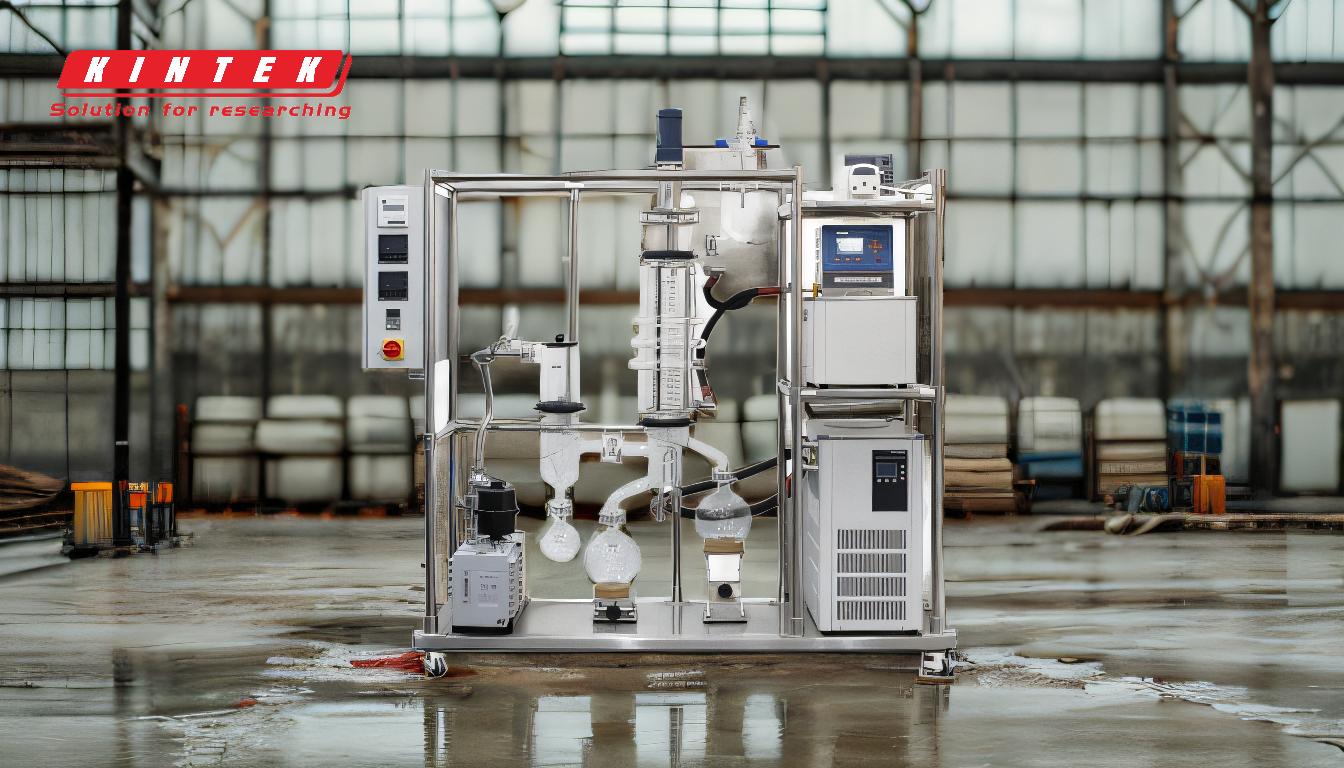Distillation is a widely used method for purifying organic compounds, leveraging differences in boiling points to separate and collect components. The process involves heating a liquid mixture to create vapor, which is then condensed back into a liquid form. This method is particularly effective for isolating volatile compounds from non-volatile impurities or separating liquids with distinct boiling points. Proper setup, temperature control, and equipment maintenance are critical for successful distillation. Below, the key steps and considerations for distillation are explained in detail.
Key Points Explained:

-
Preparation of Equipment
- Ensure all connections in the distillation setup are secure to prevent leaks or loss of vapor.
- Verify that components such as the boiling flask, condenser, and collection vessel are in good working condition.
- If insulation is needed, wrap the boiling flask and the lower portion of the distillation head with insulation rope, leaving the Vigreux column visible for observation.
-
Loading the Mixture
- Place the liquid mixture containing the organic compound into the boiling flask (evaporation chamber).
- Avoid overfilling the flask to prevent boiling over or uneven heating.
-
Heating the Mixture
- Apply heat gradually to the boiling flask using a heating mantle or other heat source.
- For precise control, set the heating mantle to an initial temperature of 60°C and adjust as needed.
- If using an analog heating mantle, start with the knob in the middle position and increase slightly if no reaction is observed.
-
Vaporization and Separation
- As the liquid heats, the component with the lower boiling point will vaporize first.
- The vapor is then directed through a vacuum unit or distillation head into the condenser.
-
Condensation
- The vapor passes through the condenser, where it is cooled and converted back into a liquid.
- Cooling is typically achieved using a water jacket or other cooling system.
-
Collection of Distillate
- The condensed liquid, now purified, is collected in a separate container.
- Monitor the distillation process carefully to ensure the correct fraction is collected.
-
Optimization and Troubleshooting
- Adjust the heating rate and stirring speed (e.g., 200 RPM) to maintain a steady distillation process.
- If the reaction is slow or incomplete, slightly increase the heat or adjust the setup.
- Ensure the valve on the manifold is open for proper airflow and pressure control.
By following these steps and considerations, distillation can effectively purify organic compounds, yielding high-purity products suitable for further use or analysis.
Summary Table:
| Step | Key Actions |
|---|---|
| Preparation | Secure connections, check equipment, and insulate if necessary. |
| Loading the Mixture | Add liquid mixture to the boiling flask, avoiding overfilling. |
| Heating | Gradually apply heat, starting at 60°C, and adjust as needed. |
| Vaporization | Lower boiling point component vaporizes first and moves to the condenser. |
| Condensation | Cool vapor in the condenser to convert it back into liquid form. |
| Collection | Collect purified liquid in a separate container, monitoring the process. |
| Optimization | Adjust heating rate, stirring speed, and ensure proper airflow for efficiency. |
Need help setting up your distillation process? Contact our experts today for personalized guidance!












